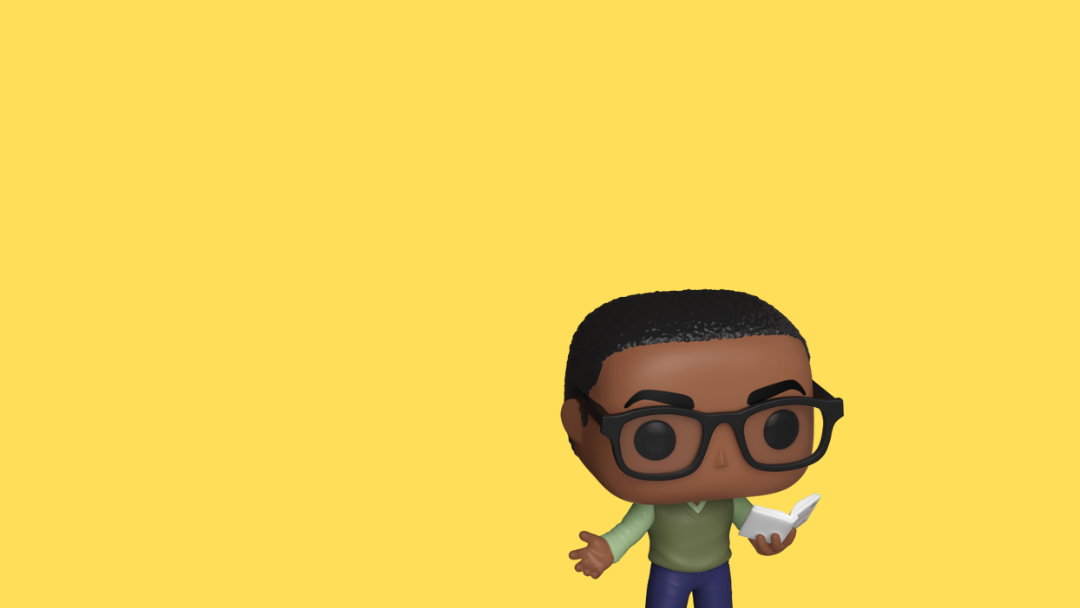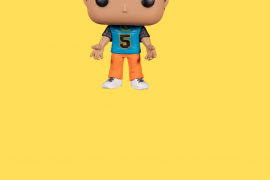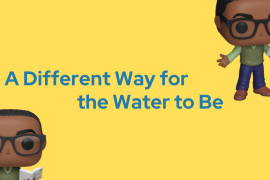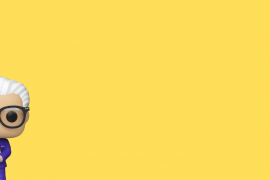I STARTED WATCHING THE GOOD PLACE DURING MY SENIOR YEAR OF COLLEGE to procrastinate writing my moral philosophy paper — because those are pretty much the same thing, right? I was even supposed to write my paper on T. M. Scanlon’s What We Owe to Each Other, so you could say that it was a kind of TV soulmate for me. But outside of the show’s actual work on moral philosophy, what resonated most with me about it was the way that the friendship between Eleanor, Chidi, Jason, Tahani, and Janet (and, eventually, Michael) developed.
At the time I began the show, my greatest anxiety about graduating was about having to leave the small community I built at school. When I talked to my professor about this fear, we ended up talking about A Brief History of Neoliberalism by David Harvey. We talked about how pervasive competition (in school, in looking for jobs) makes a lot of students feel isolated and hopeless. Since graduating, I’ve discovered that professional competition, job searching and the socially-accepted version of “success” (meaning economic prosperity) causes those same feelings.
The reason is partially that the neoliberal philosophy prevalent in the United States’ economic and social systems upholds the premise that success is entirely a result of your own hard work, and your failures are a product of your laziness, stupidity or other character failing. Of course, neoliberalism is a complex ideology that encompasses more than this simplified premis, but for the purposes of its relationship to the show, this is its essence. Neoliberalism is especially dangerous when it applies to situations where people require outside support, such as addiction, mental health, affordable housing or access to education. In a neoliberal state, we believe that those are problems that people should be able to overcome through hard work or sheer force of will. Strong individuals (the people meant to survive in this economic Darwinism) will fight against those forces and find a solution — no need for outside support, especially not from government. The free market will take care of it.
Perhaps that’s why the Judge can accurately describe Earth as “Hot and crowded, and also cold and lonely?”
Similarly, we might think that it’s up to our own judgement to be “good” (make moral decisions) or “bad” (do immoral things). But as we learn in Season 3 of The Good Place, that’s not really the case. In Episode 11 (“Chidi Sees the Time Knife”), Michael does his best to explain that every decision on Earth is full of unintended consequences. As Eleanor argues, “There are booby traps everywhere! Like, there’s this chicken sandwich, and if you eat it, it means you hate gay people. And it’s delicious!” (The Judge: “It is! It is so good!”)
Michael presents this problem as, “Life is too complicated,” but the complications to which he points suggest a more specific problem: ethical consumption is not feasible in a neoliberal free market.
“These days, just buying a tomato at the grocery store means that you are unwittingly supporting toxic pesticides, exploiting labor, contributing to global warming,” he says.
Sure, the free market means that at some point in time, a local tomato farmer could grow a tomato and sell it to his neighbor, and there might not have been any negative consequences. But the free market today, which is guided by neoliberal policies, necessitates that tomatoes are grown for the lowest possible cost so that they can out-compete any other tomatoes on the market. The process of growing and selling a tomato under these economic conditions is what makes purchasing that tomato unethical.
Michael’s essential argument can be extended to say that the system that creates an unethical tomato is a system wherein every act of consumption is unethical. Take Doug Forcett as an example; even he cannot get enough Good Place points. Chidi, constantly worrying about almond milk, is the best possible model of a conscious consumer for most of us, yet we know that even that level of care and deliberation isn’t enough for us to act ethically. Plus, remember how absolutely lonely both of them were?
Luckily, the show gives us a kind of solution (which is perhaps even more important than the gang’s final proposal for how to run the afterlife): we have to form meaningful relationships and communities.
To me, the most inspiring thing about The Good Place is that it suggests that the thing we can all do to resist a neoliberal, individualistic, lonely world is to be really good friends with one another. Through each set of hardships, the goodness of the main characters depends on whether or not they have meaningful relationships with each other; that’s how all four of the main characters improved during Michael’s experiments. Though Eleanor suggests that the reason that they could improve in the neighborhood was because the primary hardships of Earth (sexism, racism, award shows) were removed, that can’t really be true; even without systemic racism and sexism, discrimination lives within everyone in the form of unconcious biases (case in point: Brent). The real reason the characters were able to improve was because their collective self became more important than their individual selves.
As a side note, this is something that shows up in plenty of Schur classics (I’m thinking specifically of The Office, here, because of its corporate context). The difference between a full-time job that’s a soul-vise and a full-time job that’s a humorous adventure is the people (Call Michael and Stanley, Jim, Dwight, Creed / Call Andy and Kelly for your business paper needs / Dunder Mifflin: the people person’s paper people!). But in this case, The Good Place extends the healing power of community beyond one group and applies it as a balm to a neoliberal economic system in general.
The whole premise of the first season is that Eleanor can become a better person when Chidi puts himself at risk to help her hide her “mistaken” placement in the neighborhood. Her goodness is dependent on another person, just like Chidi’s goodness is dependent on him helping her. Eleanor’s star moment of goodness is when she reveals that she is the problem with the neighborhood, essentially damning herself so that her newfound friends can enjoy an unbroken “heaven.” The same is true for Michael; we can only assume that he would have continued to be an evil fire squid in a skin suit unless he learned to be empathetic from Chidi and Eleanor.
In fact, it’s hard to imagine anyone being good in a situation where they are the only person (hence the appropriate choice of Scanlon’s What We Owe to Each Other), yet that is how neoliberalism suggests we act. As the world is now, many people feel that acting in a self-interested way is the only way to have a functioning system. Thinking in terms of another classic problem, “Tragedy of the Commons” logic tells us that, in many real-life applications, it is beneficial to act in a self-interested way. But that is also the kind of logic that says we have every reason to buy unethical tomatoes, wear clothes made by child laborers in Bangladesh and dump our still-smoking cigarette butts on city sidewalks. If we empathize with the other people affected by our choices, self-interested action is no longer the best option.
By posing friendship as a mechanism for goodness, The Good Place is asking us to have radical empathy. We can’t just be friends with our friends and all go out for unethical beers together; we need to act as if every single living person on Earth could be our neighbor or our soul mate or our own self. We have to imagine that when we die, we could be told that our soulmate is anyone on this planet, regardless of their race, socioeconomic class, language, education or gender identity. Think of Eleanor and Tahani’s relationship when they first meet; Eleanor disdainfully wonders why Tahani gets to keep her British accent, and Tahani wonders how sassy, Arizona-born Eleanor arrived in the same afterlife as she did. For each of them to grow, they have to make someone entirely unlike themself equally as important as their own self.
Furthermore, the things that they rejected about the other person helped constitute their own identities; by rejecting cocktail shrimp and Stone Cold Steve Austin, Tahani asserted herself as posh and upper-class, while Eleanor rejected ostentatious parties and name-dropping to cement her identity as someone who is down-to-Earth and confident. In both cases, the repudiation of another person’s life and choices was a form of selfishness.
What the show is asking us to do is to give up on that kind of divisive crap. Haven’t we all been judgmental of a co-worker who is really into astrology, a barista who recommends Pod Save America or a friend who religiously watches The Bachelor? Rejecting those people is a way that we form our own identities, covertly telling ourselves, “I’m better than that.” In forming ourselves in that way, we are playing into the individualistic philosophy that makes the world such a lonely place.
As I write this point, though, it is impossible for me not to think of the people who leave the office fridge a mess, or who tell me that hot water causes cancer, or my current boss, who may very well have been the character model for Brent. One of the hardest things about the show’s solution is that often, real life feels a lot like the experiment of Season 4, with bad place demons peppering life with absolutely intolerable people. After all, didn’t Michael use the kind of psychological torture we encounter every day as a kind of innovative hell?
I grant that radical empathy is a hard solution to accept when you think about all of the unspeakably awful people that have lived and still live on Earth. Even in the Season 4 experiment, it took ages for Brent to improve at all (who, though he is arguably the most evil character in the show, is still not in the most extreme category of human badness). Still, it is important to remember that Brent did improve, even if just a little, after finding a small way to understand (ahem, empathize with) Chidi. It might take a long time, but there is no way that Brent would have changed if someone hadn’t tried to be his friend.
So maybe that’s what The Good Place challenges us to do in its departure: have the strength to extend love and community — even to humanity’s most intolerable — because despite how much our world suggests it, no one is really alone.
NEW book release
I’ll Tell You a Love Story by Couri Johnson. Order the book of which Tim Jeffries said, “Surprising in their originality, filled with broken wisdom, and with a refreshing use of language and imagery, these are stories to savour and mull over one at a time but which add up to a satisfying whole.”
GET THE BOOKLike what you’re reading?
Get new stories or poetry sent to your inbox. Drop your email below to start >>>
OR grab a print issue
Stories, poems and essays in a beautifully designed magazine you can hold in your hands.
GO TO ISSUES




